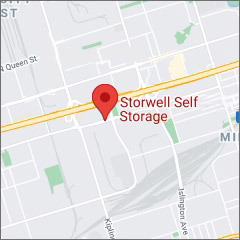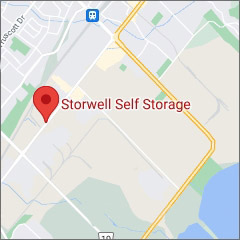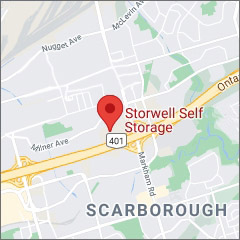A place for everything, and everything in its place.
A Totally-Not-Boring Blog About Storage
Unlocking Business Potential: How Self-Storage Can Help Your Business Thrive
Table of Contents
In today’s fast-paced business environment, adaptability and efficiency are essential for success. As companies navigate changing market conditions, one area often overlooked is space management. The ability to store excess inventory, equipment, or important documents in a secure and accessible location can significantly improve a business’ operational capacity. Enter self-storage, a versatile solution that has rapidly gained traction among businesses of all sizes.
Self-storage facilities offer a practical way to manage space without the burden of long-term leases. From enhancing productivity by decluttering workspaces to providing flexible storage solutions that scale with your business, self-storage can be a game-changer. This blog will explore the transformative benefits of self-storage for businesses, the types of enterprises that can reap the most rewards, and how to choose and maximize your self-storage experience.

1. Transformative Benefits of Self-Storage for Businesses
Financial Flexibility
One of the most appealing aspects of self-storage for businesses is its financial viability. Unlike traditional office or warehouse leasing, which often comes with lengthy commitments and hefty deposits, self-storage units offer a cost-effective alternative. Renting a self-storage unit typically requires minimal upfront costs, and businesses can select lease terms that fit their unique needs—month-to-month or long-term.
This financial flexibility allows businesses to allocate resources more effectively. Rather than tying up capital in unused space or overextending budgets for larger premises, companies can opt for smaller storage units that can easily be expanded as their needs change. This flexibility is particularly valuable for startups or businesses experiencing seasonal fluctuations, allowing them to scale their storage solutions aligned with their operations.
Enhanced Operational Efficiency
An organized workspace is critical for productivity. When clutter accumulates, it can lead to decreased efficiency, distracted employees, and missed opportunities. Self-storage can significantly enhance operational efficiency by freeing up valuable office space. By moving the non-essential items to a storage unit, such as outdated inventory or seasonal decorations, businesses can create a more streamlined environment focused on core operations.
Additionally, self-storage helps businesses maintain a clean and professional appearance. A well-organized office can improve employee morale, fostering a culture of productivity and focus. Employees are more likely to thrive in an environment where they can easily locate what they need, whether it’s supplies, documents, or equipment.
Agility and Growth
Business landscapes are dynamic, and the ability to pivot quickly can set successful companies apart from their competitors. Self-storage provides the agility needed to adapt to changing circumstances. Whether it’s a sudden influx of inventory during a holiday season or the need to temporarily house materials for a new project, self-storage units offer short-term solutions without the complications of moving to a new space.
For businesses anticipating growth, self-storage is a practical option that supports scalability. As a company expands, its storage requirements often change. Self-storage facilities allow businesses to scale their storage needs up or down with ease. Rather than committing to a larger, more expensive office space, companies can rent additional storage units as required, ensuring they only pay for what they need.
2. Who Can Benefit from Self-Storage?
Self-storage isn’t a one-size-fits-all solution; various types of businesses can leverage its advantages in different ways. Here are some examples of who can benefit the most:
Retailers and E-commerce
In the retail and e-commerce sectors, inventory management is crucial for success. Seasonal fluctuations often lead to excess stock, which can overwhelm storage space. Self-storage provides an ideal solution for retailers looking to manage seasonal inventory without the cost of renting a larger retail space.
For e-commerce businesses, self-storage can streamline logistics. By housing excess inventory or packaging materials in a storage unit, businesses can create a more efficient fulfillment process. This approach enables faster shipping times and better customer service, which can ultimately drive sales and enhance customer satisfaction.
Contractors and Service-Based Businesses
For contractors and service-based businesses, self-storage can simplify logistics and improve operational efficiency. Many service providers require tools and equipment that can take up significant space in an office or worksite. A self-storage unit offers a secure place to store this equipment, making it easily accessible when needed.
Moreover, contractors often work on multiple projects simultaneously, which means they may have equipment or materials that are not always in use. Self-storage allows these businesses to keep their sites organized and their tools secure, ultimately improving project management and reducing the time spent on logistics.
Startups and Entrepreneurs
For startups and entrepreneurs, finding affordable space solutions is critical. Self-storage offers an economical alternative to traditional office rentals, allowing new businesses to manage their records, supplies, and equipment without the overhead costs. This option is particularly beneficial for startups in their early stages, where every dollar counts.
3. Selecting the Ideal Self-Storage Unit
Choosing the right self-storage unit is essential to maximize its benefits for your business. Here are some key factors to consider:
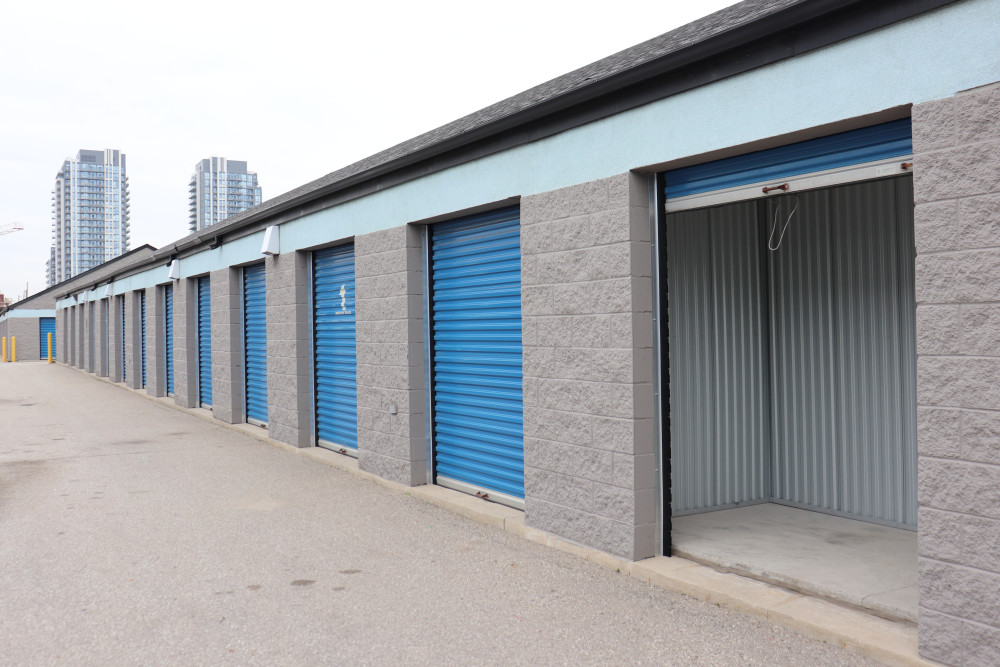
Defining Your Storage Needs
The first step in selecting a self-storage unit is assessing your specific storage requirements. Consider the type and amount of items you plan to store. This could range from excess inventory and equipment to important documents and seasonal decorations. Understanding what you need to store will help you determine the size and type of unit required.
Strategic Location Matters
The location of your self-storage unit can significantly impact your operations. Selecting a facility that is conveniently located near your business or main client base will save you time and transportation costs. Consider how often you will need to access your storage unit and choose a location that minimizes travel time.
Additionally, proximity to major transportation routes can enhance logistics for deliveries or pickups, further optimizing your operations. Balancing convenience with cost is key to finding the right storage solution.
Prioritizing Security and Access
Security is paramount when storing valuable items. Before renting a self-storage unit, evaluate the security features offered by the facility. Look for features such as 24-hour video surveillance, gated access, and on-site management. A secure facility will provide peace of mind, knowing that * your belongings are protected.

Access hours are also an important consideration. Some businesses may require flexible access outside regular business hours. Ensure the storage facility accommodates your access needs while maintaining robust security measures.
4. Maximizing Your Self-Storage Experience
Once you’ve chosen the most suitable self-storage unit for your business, the next step is to ensure you maximize its potential. Here are some strategies to help you make the most out of your self-storage experience:
Smart Organization Techniques
An organized storage unit is essential for easy access and efficient use of space. Here are some effective organization techniques:
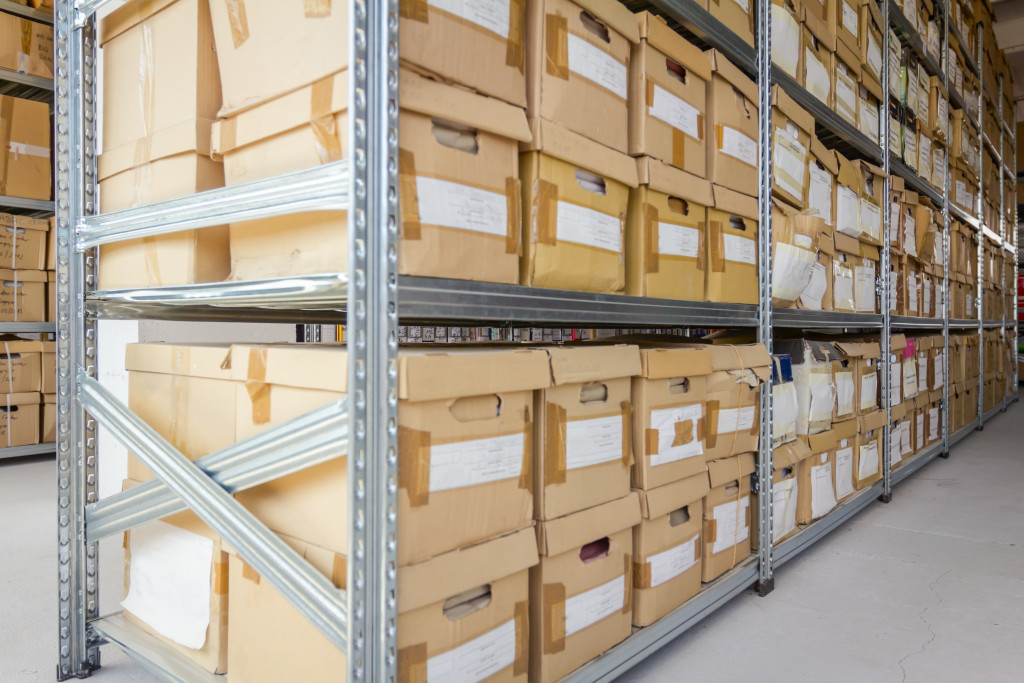
- Create Zones: Divide your storage unit into designated zones based on the type of items stored. For instance, keep office supplies in one area, inventory in another, and equipment or tools in yet another. This division not only makes it easier to find items but also helps maintain order over time.
- Use Shelving Units: Invest in sturdy shelving units to maximize vertical space. Stacking boxes or items on shelves keeps them off the floor and minimizes the risk of damage. It also enhances visibility, making it easier to locate items without rummaging through piles.
- Label Everything: Clearly label all boxes and containers to eliminate confusion when you need to find something quickly. Use large, legible labels that indicate the contents and any relevant details, such as item categories or project names. This practice saves time and reduces frustration.
- Keep an Inventory List: Maintain an updated inventory list of all items stored in your unit. This can be a simple spreadsheet or a dedicated inventory management app. Documenting what you have in storage will help you avoid unnecessary purchases and quickly locate items when needed.
Regular Review and Maintenance
Just like any other aspect of your business, regular maintenance and storage unit review is crucial for long-term efficiency. Here’s how to keep your storage unit in top shape:
- Schedule Regular Check-Ins: Set aside time every few months to review your storage unit. Check for items that are no longer needed or could be discarded. This process helps you maintain organization and ensures you’re not paying for storage space you don’t utilize.
- Clean and Organize Periodically: Dust and dirt can accumulate in storage units over time. Regularly clean the space and rearrange items as needed. This not only preserves the condition of your belongings but also helps you maintain a tidy environment.
- Update Your Inventory: As your business evolves, your storage needs may change. Regularly update your inventory list to reflect new items, disposed goods, or changes in storage requirements. An accurate inventory will help you adapt your storage strategy to align with your business goals.
Leveraging Technology for Efficiency
Technology can greatly enhance the efficiency of your self-storage experience. Here are some ways to integrate tech solutions into your storage management:
- Use Inventory Management Apps: Consider utilizing inventory management apps that * track items in real time. These apps often have features that enable you to digitally categorize, search, and label items, streamlining the organization process.
- Set up automatic payments to ensure you never miss a payment and avoid late fees.
5. Future Trends in Self-Storage for Businesses
As businesses continue to evolve, so too does the self-storage industry. Staying informed about emerging trends can help businesses make the most of their storage solutions. Here are a few trends to watch:
Flexible Rental Agreements
In response to changing business needs, many self-storage facilities are beginning to offer more flexible rental agreements. This includes options for short-term leases and the ability to easily upgrade or downgrade unit sizes as required. Such flexibility can be particularly advantageous for businesses experiencing rapid growth or seasonal fluctuations.
Integration with Logistics and Shipping
As e-commerce continues to thrive, self-storage facilities are starting to integrate more closely with logistics and shipping services. Some facilities now offer on-site fulfillment services, allowing businesses to streamline their shipping processes and reduce logistical challenges.
This trend creates opportunities for businesses to optimize their supply chain management and improve customer service by providing faster shipping options directly from their storage units.
6. Conclusion
Self-storage is more than just a solution for storing excess items; it is a strategic asset that can enhance operational efficiency, reduce costs, and support business growth. By utilizing self-storage effectively, companies can declutter their workspaces, streamline inventory management, and create a more productive environment.
From retail and service industries to startups and e-commerce, businesses of all types can benefit from self-storage’s versatility. As trends evolve and new technologies emerge, the potential for self-storage to support business success will only increase.
If you haven’t already considered self-storage as a resource for your business, now is the time to explore local options. The right self-storage solution can unlock new opportunities and help you thrive in today’s competitive market. Embrace the power of self-storage and take your business to the next level!

